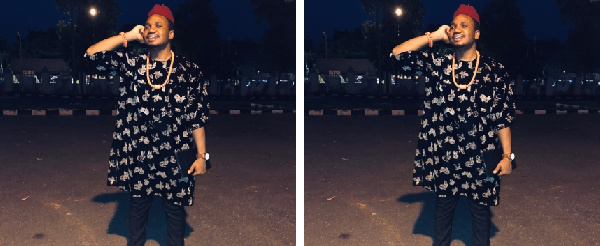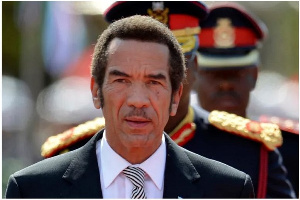Isiagu, the traditional attire that identifies the Nigerian Igbo community

In recent times, it has become a fashion trend where people adorn it for important occasions. Former Nigerian President, Buhari, has been seen wearing the Isiagu to several public events. However, the traditional attire became popular with the Igbos after the Biafra War. After feeling dejected and demoralized, Igbo inhabitants found their sense of purpose once again within the story of the fabric. The term ‘Isiagu’ means ‘the head of a leopard’ in the Igbo language, and it holds significant cultural and symbolic value for the community.
The Isiagu is a distinctive dress made from a fabric that features patterns resembling the spots on a leopard’s head. The fabric comes in different colors, but the unique leopard motif remains a constant in the print. The fabric comes in cotton or velvet, and is typically worn during cultural festivals, weddings, and other important occasions to showcase the Igbo people’s rich cultural heritage.
Beyond its aesthetic value, the Isiagu also symbolizes strength, bravery, and courage. In Igbo folklore, the leopard is regarded as a powerful and revered animal, and wearing the Isiagu signifies the wearer’s possession of similar qualities.
Furthermore, the Isiagu also represents unity and togetherness. It is often worn by members of a particular clan or community during cultural events to showcase their shared identity and cultural heritage. This attire has become an integral part of the Igbo people’s cultural identity, and it is a symbol of their rich history and traditions.
In summary, the Isiagu is more than just a piece of clothing, it is a representation of the Igbo people’s culture, values, and beliefs. Its significance as a symbol of strength, bravery, and unity has made it an integral part of their cultural heritage, this is why it is not worn as an everyday dress by everyone.
In the olden days, it was worn only by men who wore the fabric on top of a trouser. However, with modernity and other influences, the clothing has even gained an association with people who are not Igbos, but either reside in the community or have friends who are Igbos. They were to bask in the Igbo interest and its nationalism.
Women have also caught up with the craze and sew pieces of it on important occasions, and either wear them as gowns, trousers, or tops with a sandal to match. Despite the gender plurality that now heralds the Isiagu, one variable is expected to be held constant, the wearer must exude confidence and a sense of royalty when wearing the traditional attire.
Source: face2faceafrica.com





